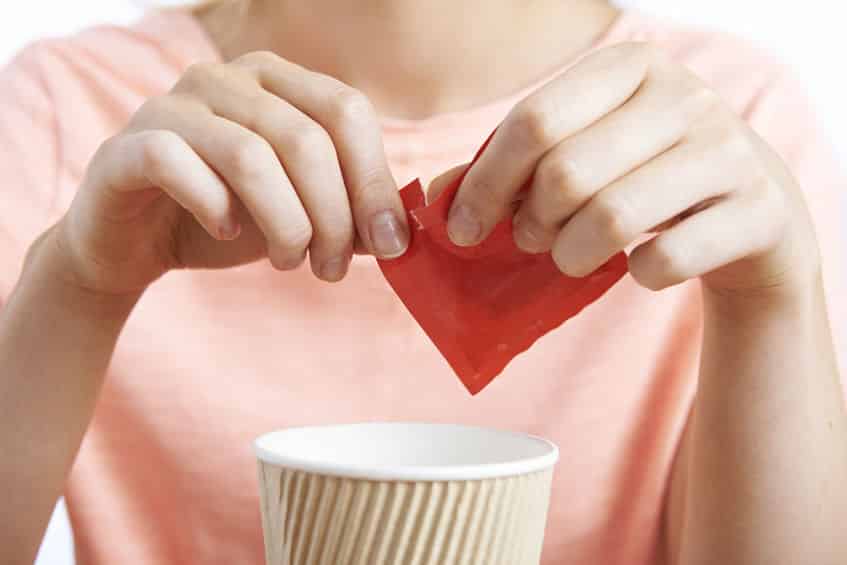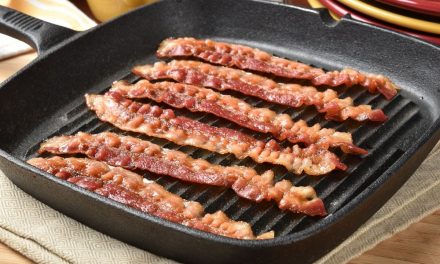Let me guess, you messed up your diet with a cheat meal and you are looking for the fastest and best way to get back into ketosis? Don’t worry, it happens to each and every one of us. And well, you came to the right place!
So, what’s the fastest way to get back into ketosis after a carb up? There are a few things you can do that will help you quickly burn up the carbs that you just consumed and get your body back in a state of ketosis:
- Minimize your carb intake as much as possible, increase healthy fats
- Do intermittent fasting with at least a 16-hour fast period
- Do intense fasted workouts or cardio sessions to quickly burn off the excess carbs that you consumed
- Take an Exogenous Ketones supplement or/and MCTs for a quick increase in blood ketone levels
- Include Keto coffee bombs in your daily routine
- Test your blood ketone levels throughout these steps to see if you are on the right track
If you are looking for a more detailed approach on each one of these steps keep reading, we’ve got you covered!

Minimize your carb intake as much as possible
The first and probably the most important step towards reaching ketosis is starting to eat the Keto way again and being consistent with it. Which means, limiting your carb-intake to about 20 g net carbs daily from which most carbs should come from nutrient-rich greens.
Focus more on high-fat foods while keeping your protein intake moderate, with a very low amount of carbs or even zero if you choose so. Doing this will obviously get you back to ketosis as time goes on, but there are a few more things you can do to speed up the process even further!
Do intermittent fasting
Fasting throughout most of the day will help deplete all of your body’s glycogen stores that you got from the cheat meal and speed up the process of getting your body back into ketosis. That means for the period of fasting, you can’t consume food or drinks that have calories in them.
There are many variations of fasting, but ideally, you should fast for at least 16 hours. You can even push it to OMAD (one meal a day) if you are able to. Also, when you eat, you don’t need to be restrictive and count calories etc.
It is better to eat until you feel satisfied, but make sure the food is completely ketogenic, lower on carbs and protein than usual and higher on healthy fats. As we talked earlier, any carbs you consume should come from quality greens like broccoli or spinach which will provide you with fiber and nutrients and help balance your body.
Intense exercise to burn off carbs
Intense exercise, like fast runs or lifting heavy weights in the gym, can even further help with burning up those pesky carbs. Additionally, doing the exercise on an empty stomach is best because that way you force your body to use the stored glycogen for energy instead of the food you have eaten prior to that.
Exercising while fasted is usually well-tolerated by most people, but if you have the feeling that it’s a challenge for you it’s totally ok to carry a small snack with you and reach for it if you start to feel faint.
Just note that if you go for a light or moderate pace instead, there is a good chance that your body will use ketones for energy, and not the stored glycogen from the cheat meal that you consumed.
And that’s not what we want, the point is to get rid of all the excess glycogen instead. For that reason, it is strongly suggested that you ramp up the pace when exercising which will make sure your body taps into your glycogen stores.
Exogenous Ketones / MCT oil
Using an Exogenous Ketones supplement or/and MCT oil can further help with transitioning back to ketosis. Both of them will elevate your blood ketone levels dramatically in a very short period of time which in turn can help your liver’s own endogenous production of ketones.
They can give you a great boost of energy and the MCT oil is also an excellent way to add some extra healthy fats to your diet. Other than MCT oil, coconut oil also has a decent amount of MCTs (medium-chain triglycerides). To learn more about supplements, check out our Keto Supplement Guide
Include Keto coffee bombs in your daily routine
Keto coffee bombs, also known as Bulletproof coffee or just Keto coffee, is also a great way to add some more healthy fats. And since it’s made with butter, MCTs and coconut oil, it can additionally boost your blood ketone levels and make the transition back to ketosis a lot faster.
Note that if you decided to do intermittent fasting, consuming a Keto coffee is very likely to break your fast considering the number of calories it has. With that said, it would be best to include it in your feeding time-window.
We have a complete guide on Keto coffee bombs so if you are interested, click here to find out more!
Test your ketone levels
If you really want to make sure that you are on the right track, you can progressively track your blood ketone levels using a blood ketone meter. We don’t recommend using ketone urine strips since it has been shown that they don’t provide reliable results.
If you had just one cheat meal and it was on the light side in terms of carbs, you might even be surprised to find out that you weren’t kicked out of ketosis at all! Light ketosis starts at 0.5 mmol/L, with 1.5 – 3 mmol/L being the optimal ketosis range.
How long does it take to get back into ketosis after cheating?
That depends on multiple factors, like your metabolism, how deep in ketosis you were previously, how much carbs you ate for your cheat meal/day and so on. The time is slightly different from person to person, but usually, it can vary anywhere from not being kicked out of ketosis at all to up to like two weeks.
If you were in ketosis for a longer period of time (at least a few months) and you had one cheat meal that wasn’t that high in carbohydrates, the transition will be on the lower part of that range.
But if let’s say you started eating Keto a month ago, only recently got into ketosis and you cheated the whole weekend with multiple high-carb meals, that can completely kick you out of ketosis and it might take you a lot longer to transition back to it.
Last but not least, don’t be too hard on yourself
We have to face it, we are not machines and we cannot be 100% perfect in anything we do, including dieting. Actually, having a small cheat meal from time to time won’t do any harm and can be a great emotional benefit.
Sometimes just giving yourself that little gratification that you can have a cheat meal now and then is exactly what gets you through a long bout of dieting.
Even if you got bumped out of ketosis, it’s not the end of the world. Just hop back on the Keto wagon, spice it up with some of the things we talked about earlier and you will be back in ketosis and fat-burning mode in no time!
Related Questions
How many grams of carbs will take you out of ketosis?
Eating under 30 g of carbs daily is kind of a safety net for most people, considering they also track the amount of fat and protein they consume (yes, too much protein can kick you out of ketosis too!).
You have to take into account multiple factors like your metabolism, your current state of ketosis and so on, so the best way to find out would be to experiment with different foods and test your blood ketone levels before and after consuming them.
Is it ok to have a cheat day on Keto?
Although cheating can have multiple negative consequences, like increased hunger, stalling your weight loss progress, fatigue, brain fog, slowing down and even reversing your fat adaptation ability, it can be beneficial to your well-being and willpower to have a cheat meal from time to time if you have really bad cravings.
The cool thing about the Keto way of eating is that the longer you stick to it, the less hunger and carb cravings you will have, so even if you need to cheat now and then, just get back on track and keep going. It will get a lot easier as time goes on.
How can I stop craving carbs?
If you are craving carbohydrates all the time, that usually means that you are not fully fat-adapted (producing and using ketones for energy instead of glycogen) yet. If you are not already, there are a few things you can do to make sure you are on the right track to fat-adaptation:
- Limit your carbs to 20 net grams daily and stick to it: Having too many carbs can spike your insulin levels which results in an increase in hunger and more carb-cravings.
- Do intermittent fasting: Reducing the frequency of eating will greatly reduce and balance insulin levels which is the biggest reason for carb-cravings.
- Consume more green vegetables: Eating quality greens like broccoli, spinach or kale on a regular basis will provide you with your daily needs of potassium, magnesium and other electrolytes which greatly help improve insulin resistance.




![What is Keto Insomnia: 9 Tips on How To Cure It [Guide]](https://shortcutketo.com/wp-content/uploads/2019/07/keto-insomnia-sleeping.jpg)











